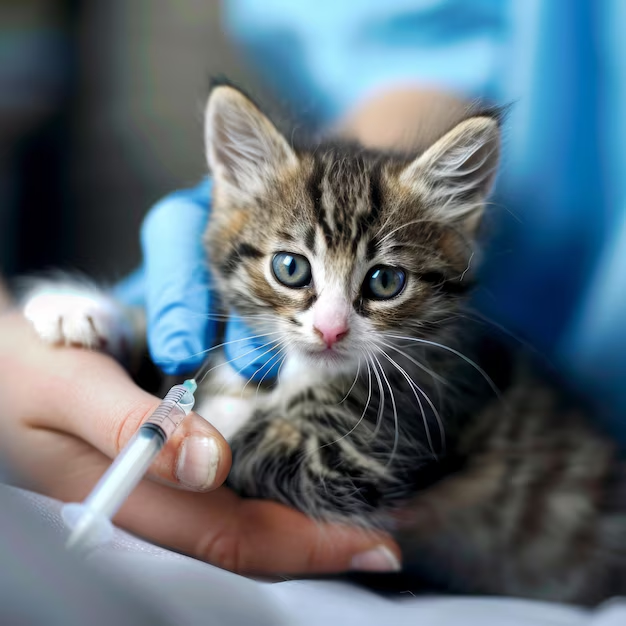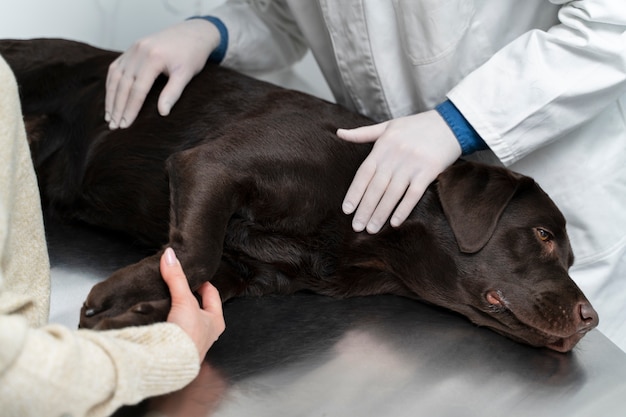Understanding Vaccine Allergic Reactions in Pets

Vaccinations are essential to protecting our pets from dangerous diseases, but like any medical treatment, they can occasionally cause reactions. While most pets handle vaccines well, a small percentage might experience mild or more serious allergic reactions. At AM PM Spay Neuter and Vaccine Clinic, we take every precaution to ensure your pet’s safety during the vaccination process. Understanding the possible reactions and what to look for can help you feel confident about this important aspect of your pet’s care.
When your pet receives a vaccine, their immune system is exposed to a harmless form of the virus or bacteria. This prepares their body to recognize and fight off the real threat if they encounter it later. Most pets experience no issues at all, but in some cases, their immune system may overreact, leading to an allergic response. The most common symptoms include swelling at the injection site, mild fever, or lethargy, which typically resolve within a day or two. However, more severe reactions can occasionally occur, such as facial swelling, difficulty breathing, vomiting, or hives. These signs can develop within minutes to hours after vaccination and require immediate veterinary attention.
Though allergic reactions to vaccines are rare, it’s important for pet owners to be aware of them and act quickly if they occur. Many times, the reaction is simply a sign that the pet’s immune system is responding to the vaccine, but it can also be a sign of a more serious issue that needs medical intervention. At AM PM Spay Neuter and Vaccine Clinic, we closely monitor pets after their vaccinations to ensure they are not showing any signs of distress before sending them home.
Each pet's response to a vaccine can vary, and some are more prone to allergic reactions than others. Pets with a history of allergies, certain breeds like Dachshunds, Boxers, and Pugs, or those with compromised immune systems may have a higher risk. It's important to discuss your pet's medical history with your veterinarian before vaccination. If your pet has had a previous allergic reaction to a vaccine, your vet may recommend administering a pre-vaccine antihistamine, spacing out vaccines over time, or selecting a different type of vaccine.
If your pet does have an allergic reaction, there are treatments available to alleviate their discomfort. Mild reactions often resolve on their own, but if the symptoms are more severe, your veterinarian may provide medication such as antihistamines or corticosteroids to help reduce inflammation and ease symptoms. In very rare cases, a pet may go into anaphylactic shock, which requires immediate emergency care.
Preventing vaccine reactions starts with clear communication between you and your vet. At AM PM Spay Neuter and Vaccine Clinic, we are dedicated to working with pet owners to develop a vaccination plan tailored to each pet's unique health needs. Regular checkups and proper monitoring help us keep track of how well your pet tolerates vaccines and allows us to adjust their care if necessary.
While the idea of your pet having a reaction can be frightening, it’s crucial to remember that the benefits of vaccination far outweigh the risks. Vaccines protect pets from diseases that are not only serious but often fatal, such as rabies, parvovirus, and distemper. By staying informed and working with your vet, you can feel confident that your pet is protected while minimizing any risks associated with vaccines.
If you have concerns about your pet’s vaccination plan or want to learn more about protecting them from allergic reactions, contact AM PM Spay Neuter and Vaccine Clinic today at (562) 282-9639 or visit us at 12852 Pioneer Blvd,Norwalk,CA, 90650 to schedule a consultation with us.

















